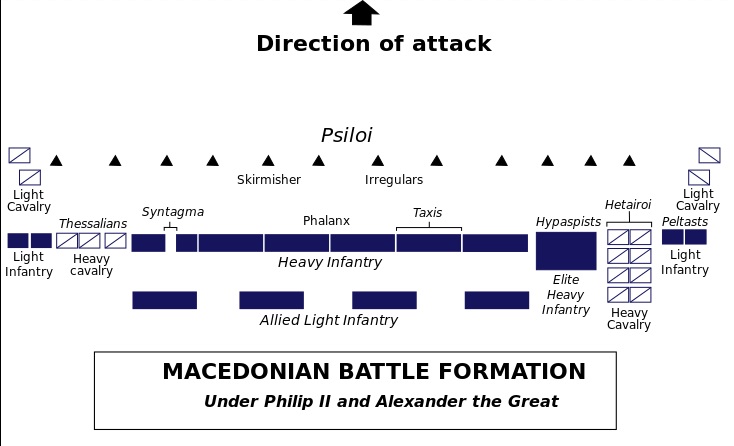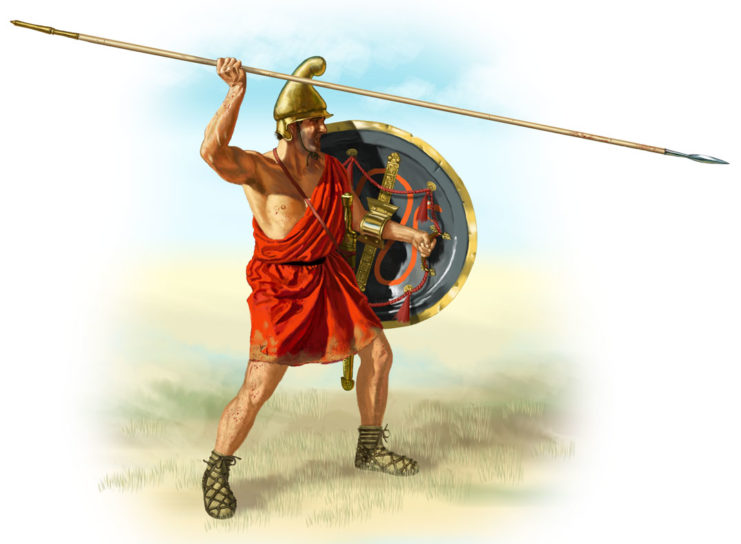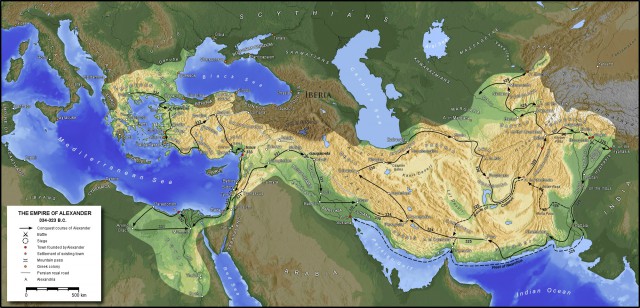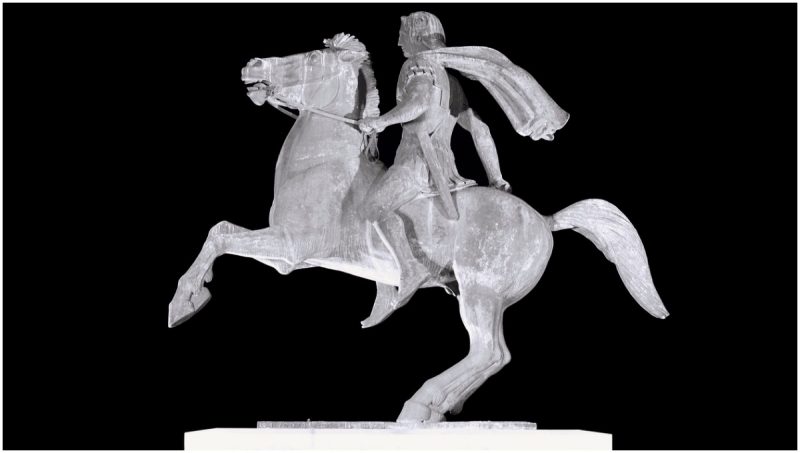Alexander the Great was one of the most talented generals who ever existed, but he was helped a great deal by his exceptional army. While we tend to think of Alexander’s whole army, including his Phalangite phalanx, as an elite force, Alexander had his own core of hand-picked expert troops. These men were a type of troop known as Hypaspists, and were later known as Silver Shields from carrying silver plated shields.
These elite troops were chosen solely by talent and experience rather than any political motive. The Silver Shields occupied a very important position on the right flank of the standard Macedonian phalanx. As the standard phalangite had a small shield on his left and an unwieldy two-handed pike, the whole right flank of a formation was terribly vulnerable. By having elite troops defending this vulnerable area the phalanx could do what it did best and churn its wall of spears forward.
Though their equipment is heavily debated and they likely changed arms to fit the task at hand, the Silver Shields seem to have usually been outfitted more like a Greek hoplite than a Macedonian phalangite, wielding the larger Greek Aspis and shorter spear, but they wore much less/lighter armor as speed was one of their greatest strengths.
In a generic battle the Silver Shields likely would have simply advanced along with the rest of the line, some armed as phalangites, some like hoplites, but Alexander’s battles were rarely generic and the Silver Shields were often used like ancient Special Forces.
The Silver Shields were often tasked with leading a charge on a battlefield or storming a wall, such as at Tyre, and when he sent thirty volunteers to scale the rock walls of the Sogdian Rock fortress, Silver Shields likely formed the majority of the force. What is interesting about the men is that many were already veterans of Philip’s Greek Wars and were well into their 30’s and 40’s during Alexander’s campaigns.

Though far from being “old” yet there were still remarkably swift and agile on the battlefield, when Alexander launched his spearhead charge against Darius at Gaugamela, the Silver Shields were among the first infantry units to hit the Persian lines with Alexander’s companion cavalry. When Alexander chased the fleeing Darius, several of the Silver Shields and their commander Nicanor, were among the few to join him.

After the death of Alexander the wars of his successors began. The Silver Shields had been fiercely loyal to Alexander and so sought to align themselves with the man they thought would best continue his legacy, Eumenes. Eumenes fought against Antigonus at the battle of Paraitakene. The Silver Shields formed the core of Eumenes’ line, so were likely armed as phalangites, and their ages ranged from 50-70’s. Despite their age, the Silver Shields fought exceptionally well and pushed forward into Antigonus’ lines. What would have surely been a victory was turned into a stalemate as Antigonus was able to charge his heavy cavalry into the gap made by the advance of the Silver Shields and forced both armies to retreat and regroup though Antigonus seems to have suffered the majority of the casualties for the day.

Antigonus was shocked by the performance of these veterans who should have been well past their prime, but still had the resources to fight Eumenes a few months later. At the battle of Gabiene, Antigonus outnumbered Eumenes by a significant amount but Eumenes had confidence in his Silver Shields and placed them in the center to break through for victory. As the battle commenced Antigonus’ army were successful in almost every part of the field except against the Silver Shields. As the Veterans pushed through the center they were oblivious to everything around them as the battle had brought up a huge dust cloud.
Using the dust cloud to his advantage, Antigonus sent troops to take Eumenes’ camp, which contained not only Silver Shields’ wives and children as well as accumulated wealth of a lifetime on campaign. The Silver Shields were able to keep their cohesion on the battlefield and met up with the remnants of Eumenes’ army. After some negotiations between some of the Silver Shields and Antigonus, the Silver Shields betrayed their unit commander and Eumenes and delivered them to Antigonus in exchange for their families and belongings.
After this incident, Antigonus sent the Silver Shields to the borders of the empire, modern day Afghanistan. The governor here was given orders to use the men in small groups for dangerous missions in order to contain them and whittle down their numbers. It is here that the Silver Shields got to finally die in battle or retire after a long career as some of the most decorated fighters of the ancient world.
By William McLaughlin for War History Online
